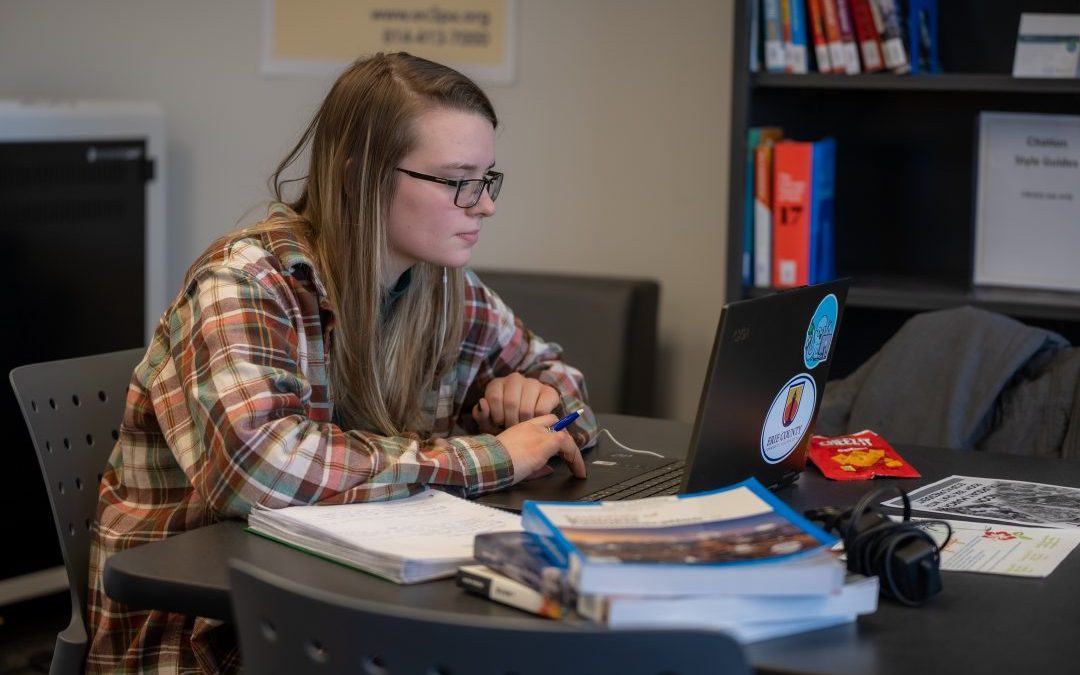Notes from the President
Chris Gray, Ph.D. | Founding President, Erie County Community College of Pennsylvania
With summer winding down and the Fall 2022 semester a few weeks away, I thought that it would be helpful to highlight all of the career pathways now available to students at EC3PA. But first, I wanted to take a step back and explain what “pathways” are in an educational context as this has become a sort of industry term of art and can easily be misunderstood.
Simply, an educational pathway is a curriculum designed for students who enter college with a particular career goal in mind. I’ve spoken previously about how I entered college not knowing how it worked, how to choose classes, how to get student loans, etc. I’ve called this understanding of the higher ed system “how to college,” and I had absolutely no idea how to do it. I, like many first-generation college students, had no one to whom I could reach out when I entered my community college many years ago, and I remember the feelings of overwhelm and fear all too clearly. I am fully committed to ensuring that our students at EC3PA don’t enter our doors and have that same experience. Enter pathways.
Pathways exist to help students navigate through a sea of courses and choose those that will get them to their educational goal as quickly as possible. While these curricular paths do offer space for exploration through elective courses, they are focused on a specific goal – whether that be career training or a transfer to a baccalaureate institution. They provide a menu of courses from which students can choose, and they help to ensure that students don’t get to the end and find out (1) that they are missing courses that they need to graduate or (2) that they have spent money needlessly on courses that do not help further their educational goal.
One of the ways that pathways have become contentious is through their focus on a specific educational goal. Some challengers argue that using career pathways to guide student education somehow causes students to miss out on the intellectual exploration that is a traditional hallmark of liberal arts education. Under this old model, education was a time to find oneself, and for some, it absolutely still is. That model, however, is reductive and far too simplistic for the modern world and many of our modern students. It’s no secret that college is expensive, and we owe a duty to help minimize that cost through focused guidance. Some students come to college unsure of what their future is – see also: everyone with an undeclared major – but others enter confident of what they want to do and wanting to do so as quickly as possible. And then there are students who fall somewhere in the middle; these students have an idea about what interests them but are not yet sure how to turn those interests into a career. Pathways help all of these students by helping them to focus and to take a balanced slate of classes that will enable them to make the next best decision for themselves.
To that end, EC3PA has created the following pathway options to help guide our students as they work on pursuing their career goals:
- Business, Management, and Entrepreneurialism pathway, culminating in an A.A.B. in Management and Entrepreneurial Thinking
- Information Technology pathway, culminating in an A.A.S. in Network Systems, an A.A.S. and/or Certificate in Programming, and an A.A.S. and/or Certificate in Mobile App Development
- Public Service pathway, culminating in an A.A.S. in Criminal Justice and/or a Certificate in Corrections
- Manufacturing pathway, culminating in a Certificate in Welding, a Certificate in CNC Operator/Programmer, a Certificate in Industrial Machine Maintenance, or a Certificate in Automated Electrical Systems
- Four-Year Transfer pathways, culminating in an Associate of Arts degree before transferring to a baccalaureate institution
Far from limiting student options, these career pathways enable us to get out of our students’ way and help them to reach the goal to which they aspire. Last fall, we had just two pathways available to our students, and I’m excited to see EC3PA’s growth. More significantly, I’m beyond excited that we continue to add career pathways based on both student and community need. Our commitment to our students and to workforce development remain inseparable, and that will continue to be the case moving forward.

